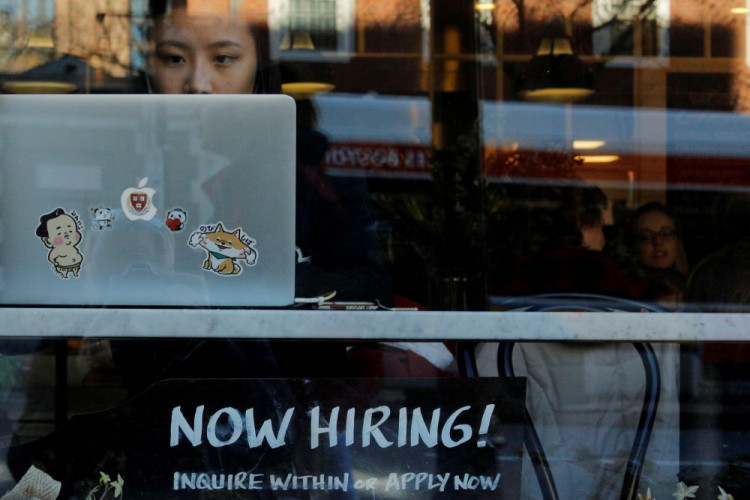Private sector hiring in the U.S. slowed significantly in February, with employers adding just 77,000 jobs, well below expectations and marking the weakest gain since July, payroll processing firm ADP reported Wednesday. The figure fell far short of the 148,000 estimate by economists and was a sharp decline from January's upwardly revised 186,000 jobs. The report comes amid mounting concerns over economic uncertainty as businesses weigh the impact of President Donald Trump's new tariff policies.
Markets responded with caution to the report, with stock futures trimming gains and Treasury yields reacting mixed. The slowdown in hiring aligns with broader economic indicators showing weakening consumer spending, sluggish retail sales, and a downturn in manufacturing activity. ADP's chief economist, Nela Richardson, pointed to growing hesitancy among employers, stating, "Policy uncertainty and a slowdown in consumer spending might have led to layoffs or a slowdown in hiring last month. Our data, combined with other recent indicators, suggests a hiring hesitancy among employers as they assess the economic climate ahead."
Certain industries have seen notable declines in hiring, reflecting concerns over trade policies. A category encompassing trade, transportation, and utilities reported a loss of 33,000 jobs, while education and health services shed 28,000 positions. Information services, a sector closely tied to artificial intelligence and tech development, declined by 14,000 jobs, despite Trump's emphasis on bolstering AI investment. Manufacturing added 18,000 jobs, providing a rare bright spot in an otherwise mixed employment landscape. Leisure and hospitality saw the largest gains, adding 41,000 jobs, while professional and business services increased by 27,000. Financial activities and construction each gained 25,000 positions.
Job growth was uneven across different business sizes, with large companies-those employing 500 or more workers-adding 37,000 jobs. However, small businesses, particularly those with fewer than 50 employees, reported a net loss of 12,000 jobs, signaling heightened vulnerability among smaller firms in the current economic environment. Richardson emphasized the broader trend, saying, "We saw the same downshift in the labor market that is reflective of the overall economy. We saw a decrease in spending in the consumer side in January, and so we're seeing those industries tied to consumer, like retail sales, feel that same kind of inflection point downward."
The ADP data serves as a precursor to the Labor Department's Bureau of Labor Statistics (BLS) report on nonfarm payrolls, which is due Friday. However, ADP and BLS reports have historically diverged due to differing methodologies. In January, the BLS reported an increase of 111,000 private payrolls, significantly below ADP's figure. Economists surveyed by Dow Jones expect Friday's BLS report to show job gains of 170,000 and an unemployment rate holding steady at 4%.
Jason Furman, former chairman of the Council of Economic Advisers, said in an interview with Yahoo Finance that while the economy is not yet in a downturn, signs of a slowdown are evident. "I don't think the economy is turning on a dime in a negative direction," Furman said. "But everything on the uncertainty, sentiment, all of that is pushing toward slowing."
The weaker hiring data follows a broader trend of economic uncertainty, particularly as Trump's tariff strategy raises inflation concerns. The president has imposed additional duties on imports from Mexico, Canada, and China, sparking fears that rising costs will trickle down to consumers and businesses. Trump remained steadfast in his approach, saying in his address to Congress, "Whatever they tariff us, we tariff them. We will take in trillions and trillions of dollars and create jobs like we have never seen before."






